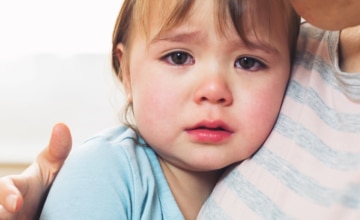Emily A. Bosk, Sarah V. Kautz, Alicia Mendez, Rutgers University, The State University of New Jersey
Karen E. Hanson, Amy J. Myers, and Jeanette Radawich, Yale Child Study Center, Yale University
Abstract
Effective relationship-based practice must be nurtured, modeled, and implemented at an organizational level. In this article, the authors discuss principles and strategies for creating an organizational, parallel process for relationship-based practice. They identify how organizational, relational “ways of being” are important for creating the context in which clinical actions take place, setting the stage for bridging clinical practice principles with organizational ones.
Relationship-based practice is at the heart of infant mental health (Walsh et al., 2021; Weatherston & Tableman, 2015). Long recognized as a key mechanism for change, relationship-based practice requires explicit attention to the clinician–client relationship (Bryan et al., 2016; Ferguson et al., 2022). The vast literature on relationship-based practice, however, often examines client–clinician relationships without also considering the organizational settings where most clinical work occurs. Effective relationship-based practice must also be nurtured, modeled, and implemented at an organizational level. In this article, we consider principles and strategies for creating an organizational, parallel process for relationship-based practice. We identify how organizational, relational “ways of being” are important for creating the context in which clinical actions take place, setting the stage for change. In doing so, we seek to bridge clinical practice principles with organizational ones, highlighting their intersection and interdependence.
Relationship-based practice is founded on the principle that the therapeutic relationship is the vehicle for change (Weatherston & Ribaudo, 2020). Strong relationships between clinicians and clients are associated with improved therapeutic outcomes (Mitchell, 2020). Some (but not all) of the ways in which relationships support clinical change are through providing a corrective emotional experience, supporting capacity-building, the joint creation of a coherent narrative that connects past experiences to present ones, and the clinician’s effective use of self (Trevithick, 2003). These practices are both shaped and enhanced by effective communication, honesty, consistency, and reliability within the therapeutic relationship (Fredrick et al., 2021).
Salzberger-Wittenberg defined relational change as “a two-way process in which both parties affect each other” (1970, p. 37). Change within relationship-based processes is dynamic and interactional, with the unique characteristics, perspectives, and qualities of each person influencing the other (Trevithick, 2003).
Within this framework, it makes sense that the context within which this work takes place (the organizational environment) would be influential in how relationships between clients and clinicians play out. Research demonstrates that organizational climate and culture directly impact client outcomes. Negative organizational climate is associated with poorer quality practice (Glisson & Green, 2011; Horwath, 2015). When the needs of frontline staff are unmet, negative outcomes for children increase (Adamson et al., 2014; Glisson & Green, 2011; Hemmelgarn et al., 2006; Morrison, 2007). As such, recognizing and identifying relationship-based processes at the organizational level is important for the successful implementation of relationship-based programs. Yet, beyond reflective supervision, less attention has been paid to defining organizational, relationship-based practice. The goal of this article is to outline specific strategies for the relationship-based administration of a relationship-based intervention.
This work is based on our shared experience implementing The In-Home Recovery Program (IHRP) in New Jersey. IHRP is an intensive, in-home program that combines substance use disorder (SUD) and individual treatment, parent–child dyadic therapy, case management, and group treatment for parents with children less than 72 months old in the child protection system. Teams composed of a SUD clinician, parent–infant mental health clinician, and family support specialist meet with the parent and child in their home three times per week. Once clients achieve sobriety, they can attend group treatment once per week. IHRP is an adaptation of Family-Based Recovery (Hanson et al., 2015). In the following sections, we identify specific approaches to creating a parallel relationship-based process for the implementation of IHRP. For details about the study design and methods, see Box 1.
Box 1. Study Methods and Data Analysis
A purposeful sample of frontline providers and administrators from the Preferred Behavioral Health Group (PBHG), the In-Home Recovery Program (IHRP) -implementing agency, and its four partner agencies participated in ethnographic observation and semistructured interviews (N = 73). Partner agencies included the New Jersey Department of Children and Families, Division of Child Protection and Permanency, Preferred Behavioral Health Group (PBHG), which delivers the clinical component of IHRP, the Yale Child Study Center, and The Nicholson Foundation (the original funder). Interviews focused on experiences implementing IHRP and COVID-19 impacts on clients and service. All interviews were recorded and transcribed. Regular ethnographic observation was also conducted over a 3-year period to further examine the IHRP implementation process (Hammersley & Atkinson, 1983). Observation occurred at all agency and interagency meetings and in routine encounters with all IHRP stakeholders. Ethnographic field notes were taken to record the content of those encounters and to serve as a basis for critical reflection (Charmaz, 2014; Emerson et al., 2011). Data analysis utilized a rapid analysis approach, triangulating among data sources (Hamilton, 2013; Taylor et al., 2018). A domain summary template containing domains derived from interview guides and field notes was derived first. Additional domains were added during analysis as they emerged. Two analysts coded a total of 10 transcripts to test the developed template and its applicability to each partner agency. To assess for consistency, the analysts evaluated quote length and placement within each domain. Discrepancies were resolved using a consensus coding process (Saldaña, 2021) and then analyzed domains using a thematic analysis approach.
An Organizational Level Parallel-Process for Relationship-Based Interventions
As a relationship-based model, IHRP is premised on the idea that strong, safe, and secure relationships are one mechanism by which client change takes place. Close attention to building relationships across all stakeholders has been a key part of implementation and represents a parallel process by which the core tenets of the intervention are upheld and modeled. Multiple formal processes have been enacted to create a strong foundation for relationships at the organizational level. These processes include
- multiple regular meeting structures involving different constellations of stakeholders and partners;
- clinical consultation and reflective supervision that considers relationships between team members, partners, and organizations;
- integrated training across organizations;
- explicit attention to points of relational stress or disagreement with cases in monthly case conferences; and
- continuous quality improvement through a mixed-method evaluation that provides quarterly opportunities for formal reflection.
Regular Meetings to Build Relationships
The IHRP leadership team meets monthly to ensure that there is clear communication among all partners. Sub-teams involving different groups of stakeholders from the New Jersey Department of Children and Families (DCF), Division of Child Protection and Permanency (DCP&P), Preferred Behavioral Healthy Group (PBHG), The Nicholson Foundation, and Rutgers School of Social Work also meet monthly to build on successes and address any challenges as they arise. Monthly case conferences between IHRP teams and DCP&P present an opportunity to deepen the partnership and coordinate case actions.
Building in time to create a shared approach to the implementation of IHRP created the context for collaboration and partnership. Being intentional in implementation was a prominent theme throughout the interviews that was viewed by staff to be key to the program’s success. One person summed it up this way:
I think one of the other things that really worked well was the selection of [the DCF staff member to lead the overall IHRP initiative]...[The director] was critical because she was able to go between DCF, [PBHG], [and] Nicholson and was a great organizer and person that could facilitate building the relationships that needed to be built and strengthening those that were already there.
Clinical Consultation and Reflective Supervision
Weekly consultation between IHRP teams and clinical consultants offers reflective supervision to examine team and client relationships and supports model fidelity. The IHRP program director provides weekly supervision to IHRP teams that is intended to address relationships among the teams and with clients. These are all time-intensive, intentional efforts to create organizational processes for relationship-based practice among program staff and partners that parallel the intensive teaming structure the model provides for clients. Explicit attention to the relationships between organizations and their frontline staff are therefore an explicit part of the model.
Clinical Consultation
The parallel process, one of IHRP’s key principles, is carried into clinical consultation. IHRP consultation is relationship-based, serving to enhance the team’s understanding and implementation of the model. The consultation team mirrors the team structure with one consultant focusing on the parent–child work and the other focusing on SUD work. Both consultants support the family support specialist role. Teams submit weekly summaries on each case along with tools and measures. The consultants provide reflective consultation to the supervisor to address issues of team dynamics, clinical work, and model fidelity, and to support the supervisor as the clinical leader of the team. The team then joins the call after 30 minutes. Reflective consultation offers both the supervisor and clinical team a space to discuss clinical challenges in the work, with focused attention on building safety in relationship to enhance the therapeutic alliance. Consultants work to create a holding environment for the team where ruptures in their relationships with clients or clinical missteps that inevitably happen are shared and worked through, together. Consultants are attentive to their relationship with the supervisor and team. At times, ruptures can occur. Team members might feel anxious presenting their work for feedback. Consultation occurs on the phone, which can lead to misinterpretations of silence and engagement, because cues related to body language and eye contact are not possible. Staff can experience the consultants to be critical of their work. When this happens, it is imperative that the consultants attend to the relationship and address any potential shifts in dynamics with the supervisor and then the team.

Research demonstrates that organizational climate and culture directly impact client outcomes. Photo:shutterstock/Ground Picture
These relationship-based organizational processes have demonstrated positive effects. Specifically, they have provided clear processes for sharing information, strong teaming, and regular opportunities to raise and then address challenges or “stress fractures” in collaborative and staff relationships as they occur. DCP&P and IHRP staff have remarked that both parties feel there is a strong framework for communication and partnership, identifying the opportunities for shared discussion as key. One DCP&P staffer noted that the monthly case conferences feel different than ones with other service providers, stating that they often run more smoothly and feel more collaborative and supportive. This was evidenced when one DCP&P staffer explained that the information shared by the IHRP team at a case conference was not new to her because she had already been in constant contact with the team prior to the monthly meeting. The DCF director of IHRP noted in an email to IHRP partners that:
The level of support families are receiving from IHRP and DCP&P is beyond anything I’ve seen in 30 years of doing this work. Additionally, the collaboration, competence, support from leadership and morale was exceptional. More than anything else, I noted a spirit of hopefulness in yesterday’s monthly meeting that was inspiring.
Many DCP&P workers shared how these formal channels for communication, which led to an increase in informal communication, were distinct from other programs. These connections made the work easier, and staff reported that it improved the quality of care. As one DCP&P staff member put it:
I think having the constant feedback and consistency, [for example] they [the IHRP team] were super easy to get in touch with what we call collateral information. Where we get feedback on how they’re doing. It wasn’t like a lot of times if we have clients in [Intensive Outpatient Program], we’ll hear a month later that they tested positive, like a month ago. And that was a problem. So, they [IHRP team] were super good at communicating with us every ounce of concern, which worked... Like all the positives and the concerns, which worked really well because we as DCP&P were able to kind of step in, track and adjust. Make some changes, whatever needed to happen. And it just helped in that success I guess.

Communication challenges occurred around differences in style, personality, or unclear expectations among parties about when to be in touch, particularly around positive toxicology screens, missed appointments, or staff absences. Photo:shutterstock/Pressmaster
Integrated Training Across Organizations
Staff highlighted how relationship-based approaches to implementing IHRP set the stage for building strong partnerships. One person described how bringing all the stakeholders together for training in the model combined with a commitment to joint problem solving modeled a relational approach to implementation:
Well, the one that comes to mind I think goes way back to after the first grant was awarded and we brought a whole bunch of people together for training, and the Yale Child Study Center basically conducted that training. And everybody was in the room and it was a lot of the people who were going to be providing the service, a lot of the local leadership from public child welfare, and then all the clinicians from the program itself. This is the first time they’re meeting and they came with their own perspectives and moral views on the work, and this was new and innovative. So there were multiple times through that training, and I think it lasted 3 days if I’m recalling correctly, where a question would come up or a concern, and the group would just take a time out just to pause, to really talk about it and try to understand what it was that people were wrestling with. And so, I’m thinking of everybody [that] was there, and everybody kind of stepped up, so that you had the Yale Child Study Center, [DCF] with the [DCP&P], you had administrators and supervisors, you had the entire [IHRP] clinical team and their administrators. And there were some tough questions that people were asking that there weren’t immediate answers to, and so what you saw were clusters of all these people coming together, kind of outside of the structure of the training, and really problem solving. And it was just fun to see and fun to participate in, because there were so many different points of view that were shared, and then the built consensus, “Okay, I think this is how we’re going to move forward.”
Stress Fractures: Challenges in Communication and Partnership-Building
A relationship-based approach to organizational practice means anticipating ruptures in relationships at the staff level. As would be expected in any partnership delivering care in complex cases, at times communication and partnerships could be challenging, which resulted in relational ruptures. Communication challenges occurred around differences in style, personality, or unclear expectations among parties about when to be in touch, particularly around positive toxicology screens, missed appointments, or staff absences. Some teams and staff checked in about these client issues during the monthly case conferences while others expected that any of the above issues should necessitate a phone call or email and a follow-up/response prior to the meeting. When frontline staff from both agencies were not aligned about the process for checking in, frustration and tensions emerged.
One example of a challenge to partnership-building created an opportunity to revise and clarify expectations for communication and collaboration. At one time, DCP&P staff felt that it was hard to partner with one IHRP team and that this team was missing appointments with clients. The DCP&P staff member summed it up this way:
[Collaboration with one IHRP team] just didn’t happen. The o[ne] team, it just didn’t happen. They didn’t go out. It wasn’t like a good collaboration with us. My workers didn’t feel [that the collaboration worked well]. The families didn’t. It was more like, they have to do their thing. DCP&P will do theirs. Where the other team I felt like it was a joint thing...
Once these feelings were brought to the attention of the IHRP leadership, joint meetings were held to address them among all parties. Miscommunications were identified (particularly around the nature of missed appointments), concerns were discussed, and new procedures were created and explained to all staff members involved in the implementation of IHRP. Specifically, new policies were created surrounding staff absences so that there would be continuous coverage when staff members were out. The IHRP leadership established a space at the monthly case conferences for staff members to discuss challenges to the partnership, formalizing a space to address a topic that can be considered taboo. After this meeting a need was identified for IHRP booster training, which was scheduled for later that summer. A core tenet in infant mental health is that there will always be ruptures in relationships but that repairing these ruptures can lead to even deeper connection and trust. IHRP leadership engaged in a parallel process for repairing the miscommunications and relational challenges that reflected some of the core tenets of the model, strengthening model procedures.
Relational Structure and COVID-19
The strong relational foundation created between all stakeholders involved in IHRP provided a key mechanism by which to manage the uncertainty and challenges brought by COVID-19. During the beginning of the pandemic, the IHRP leadership team increased their meetings from monthly to bi-weekly to solve issues pertaining to the transition to telehealth, as well as to ensure clear communication among all partners.
These processes and strong relationships provide an organizational framework in which the IHRP model was quickly adapted to meet the changing needs of the clients during the COVID-19 pandemic. Because multiple layers of teaming and structures to address implementation were already in place, no new processes had to be developed for all key stakeholders to respond to emergent pandemic-related challenges. The rapid responsiveness of these structures highlights the strength of this relational organizational framework for model delivery and the continued need for leadership to meet regularly.
Quality Improvement Through Evaluation
An intensive implementation and outcomes evaluation of IHRP is part of the pilot program. The evaluation is structured with relationship-based principles in mind. The research manager meets weekly with IHRP teams and the IHRP supervisor to address challenges with the evaluation. The evaluation team delivers feedback reports to the clinicians for all assessments, to ensure that all information gathered is reflected in client care. Quarterly discussions are held with IHRP leadership to use data to inform continuous quality improvement. The evaluation team makes regular adjustments to processes in response to IHRP team feedback and meets on an as-needed basis with the full IHRP staff to facilitate implementation of the evaluation.
Principles for Organizational Relationship-Based Practice
Explicit attention to building relationships, providing opportunities for reflection on organizational processes, and attending to ruptures and repairs among staff are a critical part of nurturing relationship-based interventions. This is particularly true for programs that require extensive interagency collaboration because the potential for relational rupture remains high (Bosk & Feely, 2021). The IHRP program is being implemented using a relationship-based, organizational process that facilitates the delivery of the intervention. Specific strategies for relationship-based intervention include the development of reflective spaces for program administrators, regular opportunities for cross-agency staff connection, anticipation of relational and collaboration challenges, and the creation of a “holding space” at the organizational level for the complexity of the work. How organizations implement relationship-based interventions can offer a powerful model for clinical staff that can fuel investment in client relationships.

Explicit attention to building relationships, providing opportunities for reflection on organizational processes, and attending to ruptures and repairs among staff are a critical part of nurturing relationship-based interventions. Photo: shutterstock/Atstock Productions
While many relationship-based programs have rightly focused on providing reflective supervision as the key organizational component for implementing interventions, it is also necessary to consider other points of organizational practice within which to embed relationship-based approaches. How organizations respond to staff challenges (both personal and professional), anticipate the need to address relational ruptures between organizations and/or staff members, attend to staff histories of personal loss and trauma, and structure collaborative engagement are additional areas requiring explicit attention beyond reflective supervision. Focusing on these areas of practice can be challenging in contexts that have historically emphasized bureaucratic and administrative forms of oversight and accountability. The managerial turn in social policy and administration has resulted in a de-emphasis of the very elements of practice that are central to effective relationship-based intervention (Bosk et al., 2020; Mosley & Rathgeb Smith, 2018; Munro, 2011). In this context, it is not enough to simply offer relationship-based services, organizations themselves must attend to relationship-based principles within their own practices and procedures. As trauma-informed interventions emphasize establishing relational safety increase in popularity, and more organizations and policies seek to incorporate relationship-based practice into their approach, it is important for organizations themselves to consider how to create a parallel process that supports this work. The field of infant and early childhood mental health is well positioned to lead the way.
Acknowledgments
This study was generously supported through a grant from: New Jersey Department of Children and Families (No grant number). We recognize the following individuals for their participation in the project and for their key contributions to developing relationship-based practice at the organizational level: Mollie Greene, Pam Lilleston, and Michelle Rupe from the Department of Children and Families, Trenton, NJ; Shannon Riley-Ayers, from Riley-Ayers Consulting, West Caldwell, NJ; Raquel Mazon-Jefferson, from the Community Health Acceleration Partnership, New York, NY; Hannah Pomales, from Rutgers University, The State University of New Jersey, New Brunswick, NJ; and Tara Chalakani, Sandra C. Grebel, and Deborah S. Galletta, from Preferred Behavioral Health Group, Lakewood, NJ.
Author Bios
Emily A. Bosk, PhD, LMSW, is an associate professor at Rutgers University School of Social Work. Her research focuses on developing and examining interventions to interrupt the intergenerational transmission of trauma and policies and programs to keep families safely together. Dr. Bosk’s research has been funded by the National Science Foundation, the Doris Duke Foundation, and the Fahs-Beck Fund for Research and Experimentation. Committed to science in the service of the public interest, Dr. Bosk regularly collaborates with states and mental health organizations to improve practice and outcomes for young children and families.
Sarah V. Kautz, PhD, LCSW, is the clinical research coordinator working with Dr. Bosk on the In-Home Recovery Program. She earned her doctorate in clinical social work from the Institute for Clinical Social Work. Her research interests are with children, families, and infant mental health. She has also worked with infants, children, and families in various clinical capacities.
Alicia Mendez, MSW, is a doctoral candidate in social work at Rutgers University School of Social Work. She is currently the project director for the Substance Use Trauma and Resilience (STAR) Lab and has worked in program evaluation for more than 5 years. Her research examines how policies are implemented at the organizational and client levels within agencies that focus on trauma-informed care, and parent-infant mental health practices. Her dissertation builds off this experience and qualitatively examines the intergenerational transmission of trauma. Using a narrative inquiry approach, the study will examine how mothers who experienced childhood sexual abuse transmit their trauma to their late-adolescent aged daughters who have not experienced sexual or physical abuse. She hopes this work will highlight the nuances found in these unique mother–daughter relationships and inform future studies of intergenerational trauma, clinical practice interventions, and policies aimed at family preservation and strengthening bonds between caregiver and child. Along with her research, she also prioritizes activism within higher education. She holds various service positions in which she collaboratively works to attenuate the systemic inequities that scholars of color and other minoritized students face.
Karen E. Hanson, LCSW, is the director of Family-Based Recovery Services and an assistant clinical professor of social work at the Yale Child Study Center (YCSC). Ms. Hanson has extensive experience treating families impacted by substance use involved with child protective services. Ms. Hanson is one of the model developers of FBR. In this capacity, she engages with public agencies to shift policies and treatment options for parents with a substance use disorder. Ms. Hanson heads the model enhancement, replication, training and consultation team at the YCSC.
Amy J. Myers, MSW, LCSW, is assistant clinical professor of social work, Yale Child Study Center, Family-Based Recovery Services. Ms. Myers has provided support and clinical care to adults, children, and families in greater New Haven, Connecticut, for more than 20 years. Throughout her career, she has worked with adults with disabilities, adults with HIV/ AIDS, parents with substance use disorders, and incarcerated women. Currently, Ms. Myers provides model-related training and clinical consultation to teams who deliver in-home substance use treatment and relational parent–child support. She also contributes to ongoing learning of social workers in the Yale Child Study Center Advanced Clinical Social Work Fellowship post-master’s training.
Jeanette Radawich, LCSW, IMH-E® IV, is assistant clinical professor of social work at the Yale Child Study Center; Family-Based Recovery Program consultant. Ms. Radawich provides reflective consultation to a statewide network of teams who provide intensive in-home substance use treatment and parent–child dyadic work for families with a child under 72 months old. Throughout her career Ms. Radawich has worked in varying capacities with families who have young children. Her experience includes providing in-home, clinical, and infant mental health support to families who have experienced substance use, homelessness, insecure housing, and trauma. Ms. Radawich has provided reflective consultation to teams doing similar work in New Jersey, Pennsylvania, and, most recently, Vancouver, BC. Ms. Radawich is an endorsed infant mental health mentor through the Connecticut Association of Infant Mental [CT-AIMH] and provides reflective consultation to Connecticut service providers through CT-AIMH.
Suggested Citation
Bosk, E. A., Kautz, S. V., Mendez, A., Hanson, K. E., Myers, A. J., & Radawich, J. (2022). PERSPECTIVES: Emerging research—Not just for the client: Translating principles of relationship-based practice to the organizational level. ZERO TO THREE Journal, 43(2), 53–59.
References
Adamson, C., Beddoe, L., & Davys, A. (2014). Building resilient practitioners: Definitions and practitioner understandings. British Journal of Social Work, 44(3), 522–541.
Bosk, E. A., & Feely, M. (2021). That which is essential has been made invisible: The need to bring a structural risk perspective to reduce racial disproportionality in child welfare. Race and Social Problems, 13(8), 49–62.
Bosk, E. A., Williams-Butler, A., Ruisard, D., & MacKenzie, M. J. (2020). Frontline staff characteristics and capacity for trauma-informed care: Implications for the child welfare workforce. Child Abuse & Neglect, 110(3), 1–12.
Bryan, A., Hingley-Jones, H., & Ruch, G. (2016). Relationship-based practice revisited. Journal of Social Work Practice, 30(3), 229–233. DOI 10.1080/02650533.2016.1215978. www.tandfonline.com/doi/full/10.1080/02650533.2016.1215978
Charmaz, K. (2014). Constructing grounded theory. Sage.
Emerson, R. M., Fretz, R. I., & Shaw, L. L. (2011). Writing ethnographic fieldnotes. University of Chicago Press.
Frederick, J., Spratt, T., & Devaney, J. (2021). Adverse childhood experiences and social work: relationship-based practice responses. British Journal of Social Work, 51(8), 3018–3034
Ferguson, H., Warwick, L., Disney, T., Leigh, J., Singh Cooner, T., & Beddoe, L. (2022). Relationship-based practice and the creation of therapeutic change in long-term work: Social work as a holding relationship. Social Work Education, 41(2), 209–227. DOI: 10.1080/02615479.2020.1837105. www.tandfonline.com/doi/full/10.1080/02615479.2020.1837105
Glisson, C., & Green, P. (2011). Organizational climate, services, and outcomes in child welfare systems. Child Abuse & Neglect, 35(8), 582–591.
Hamilton, A. B. (2013). Qualitative methods in rapid turn-around health services research. VA Women’s Health Research Network.www.hsrd.research.va.gov/for_researchers/cyber_seminars/archives/video_archive.cfm?SessionID=780
Hammersley, M., & Atkinson, P. (1983). Ethnography, principles in practice. Tavistock.
Hanson, K. E., Saul, D. H., Vanderploeg, J. J., Painter, M., & Adnopoz, J. (2015). Family-based recovery: An innovative in-home substance abuse treatment model for families with young children. Child Welfare, 94(4), 161–183.
Hemmelgarn, A. L., Glisson, C., & James, L. R. (2006). Organizational culture and climate: Implications for services and intervention research. Clinical Psychology Science and Practice, 13(1), 73–89.
Horwath, J. (2015). The toxic duo: The neglected practitioner and a parent who fails to meet the needs of their child. British Journal of Social Work, 46(6), 1602–1616.
Mitchell, E. (2020). “Much more than second best”: Therapists’ experience of videoconferencing psychotherapy. European Journal for Qualitative Research in Psychotherapy, 10, 121–135.
Morrison, T. (2007). Emotional intelligence, emotion and social work: Context, characteristics, complications, and contribution. British Journal of Social Work, 37(2), 245–263.
Mosley, J. E., & Rathgeb Smith, S. (2018). Human service agencies and the question of impact: Lessons for theory, policy, and practice. Human Service Organizations: Management, Leadership & Governance, 42(2), 113–122.
Munro, E. (2011). The Munro review of child protection: Final report, a child-centered system. The Stationery Office (UK).
Saldaña, J. (2021). The coding manual for qualitative researchers. Sage.
Salzberger-Wittenberg, I. (1970). Psychoanalytic insight and relationships: A kleinian approach. Routledge.
Taylor, B., Henshall, C., Kenyon, S., Litchfield, I., & Greenfield, S. (2018). Can rapid approaches to qualitative analysis deliver timely, valid findings to clinical leaders? A mixed methods study comparing rapid and thematic analysis. BMJ Open, 8, e019993. https://doi.org/10.1136/bmjopen-2017-019993. https://bmjopen.bmj.com/content/8/10/e019993
Trevithick, P. (2003). Effective relationship-based practice: A theoretical exploration. Journal of Social Work Practice, 17(2), 163–176.
Walsh, T. B., Carpenter, E., Costanzo, M. A., Howard, L. & Reynders, R. (2021). Present as a partner and a parent: Mothers’ and fathers’ perspectives on father participation in prenatal care. Infant Mental Health Journal, 42(3), 386–399.
Weatherston, D., & Ribaudo, J. (2020). The Michigan infant mental health home visiting model. Infant Mental Health Journal, 41(1), 166–177.
Weatherston, D., & Tableman, B. (2015). Infant mental health home visiting: Supporting competencies/reducing risks (3rd ed). Michigan Association for Infant Mental Health.




